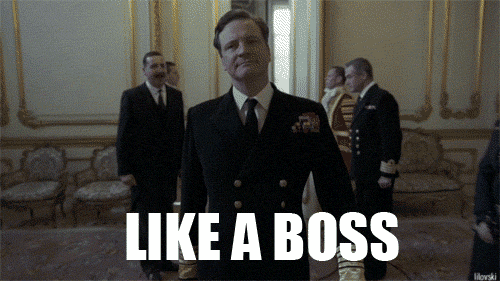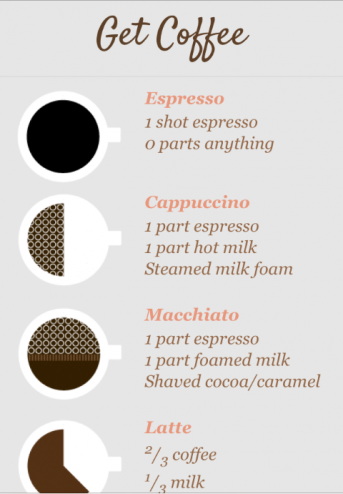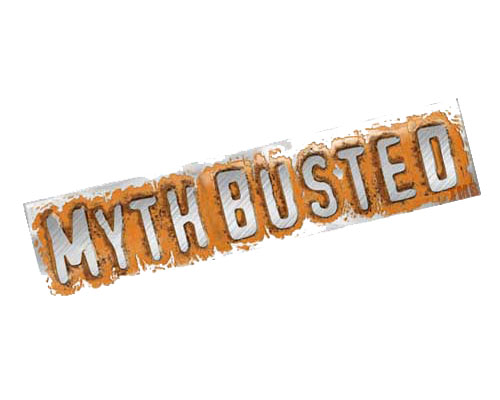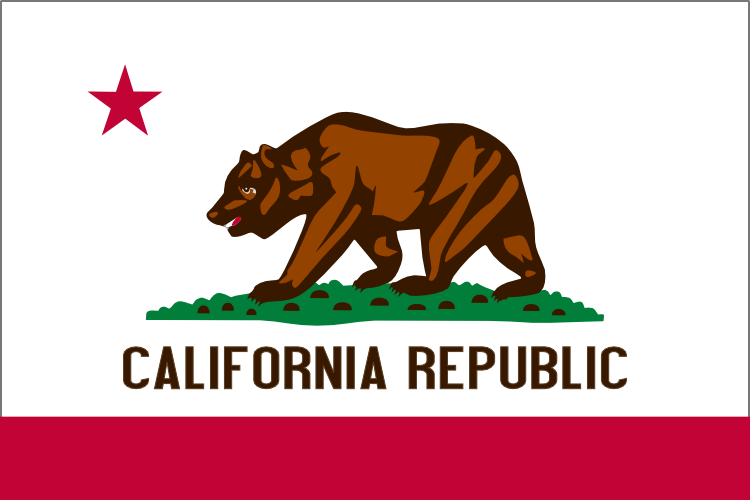That time in your life where you look for a job…
Searching for a job is a frustrating and tiresome experience.
It all starts with you building your resume (or trying to find where you placed your old resume), writing an eloquent cover letter, and then spending hours on LinkedIn, Monster, Craigslist, and other job directories.
For some of you, you’re lucky enough to do this with a group of friends or colleagues and empower each other, work together, and review each other’s resumes and cover letters to increase the chances of getting an interview and landing a job!
In the course of my job searching experience and helping colleagues and friends, I’ve noticed that there are 5 stages of human experience that people face during this crazy expedition. Let’s dive in!
Stage 1 – Enormous Confidence

You recently graduated from college/university, or you recently quit from a job you didn’t like, or you got laid off, or you’re simply looking for what’s out there.
Whatever’s the case, you know you’re the hot stuff!
Most likely you brushed up your resume, put some glitter on it, and launched it out to every big name firm you’ve ever dreamed of!
You apply to places like Google, Amazon, Twitter, Facebook, Intel, IBM, Tesla Motors, etc.
You know you’ll get it! Right?
I mean, look at that spanking clean resume combined with the MBA-class cover letter! Who can even reject that?
This is exactly what those recruiters over there are looking for!
Sometimes, you may have so much confidence that you even say that you’re looking at other places.
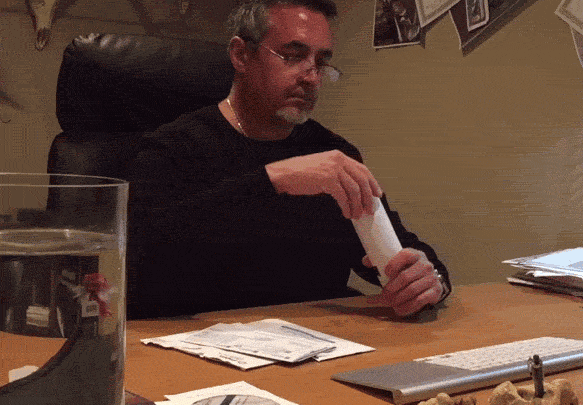
What a recruiter experiences when opening a resume that was built during the “Confidence” stage
That’s until you receive your first set of rejection letters, or two weeks of silence (because, you know, recruiters have no mechanism to inform you that your application was rejected – welcome to the 21st century!).

Recruiters and HR, please please please please use this feature in your email
Stage 2 – The Tactician/Strategist

INCONCIEVABLE!
Rejected? How can this be possible?! Inconceivable!
It’s the third week of job search, and you’re starting to feel slightly defeated, but your pride will never admit defeat!
You notice that you had few spelling errors in your cover letter, including some ridiculous grammatical errors in your resume.
Maybe you had no errors in either your resume or your cover letter – but to apply to all those companies without considering their background, needs and career path isn’t really a great idea.
You start developing strategies.
You write your resume in a way to reflect the needs of the job listed. You start listing your accomplishments and successes.
You even list your personal interests! Hoping it will attract the attention of the recruiter who also enjoys playing the Battlestar Galactica board game.
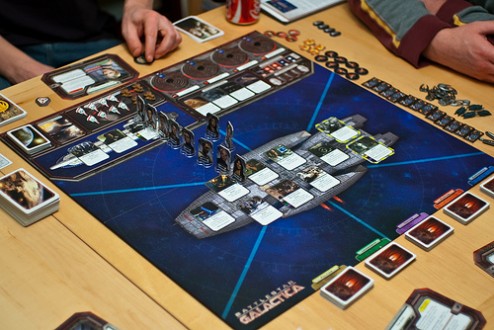
The game is actually decent…yet I prefer Dominion and Catan
Your cover letter expands further on why you’re interested in the company, and you further expand on some of your successes.
You have search queries pinned down; targeting jobs with specific titles, keywords, the date the job was posted, and even becoming more lenient with salary levels (maybe $150K right off the bat was too high?).
At this point, LinkedIn and Monster became your top visited pages on your Google Chrome homepage!
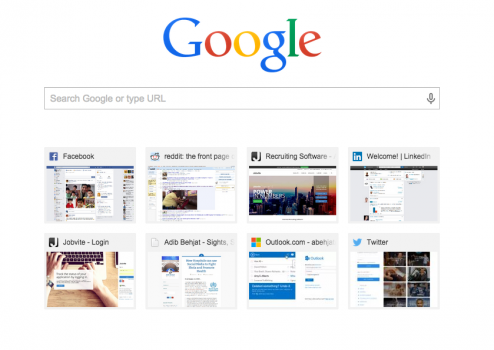
Jobvite and LinkedIn as my top pages? Shit just got real!
Yet, despite your strategic approach to job search, things don’t go as well as you’ve wished for.
You actually receive emails expressing that you are a great person, but not a great fit.
YOU ACTUALLY RECEIVE A RESPONSE!
But few weeks pass, and you realize you cannot wait any longer…
You really need a job!
Stage 3 – Whatever Works! (Desperation)
At this stage, those who were simply looking around for what’s out there are counting their blessings – they are happy to have a job.
For those who do not have that opportunity, it’s getting bad!
You’ve spent your 4-5 years in college learning something that you thought was valuable.
Maybe you should’ve paid more attention to that Data Structure or Financial Engineering class.
You wished you had a time machine to go back in time and convince yourself not to pursue that art degree.

At this stage, you wish Dr. Who was real and he would show up and take you back in time!
It’s time to humble yourself. Maybe it’s better to start from zero. How about an internship? Or even a co-op?
Your aim is to get your foot at the door, right? Do whatever it takes!
You look through entry-level jobs, even though you have years of experience in your hand.
You attend job fairs, and you’ll notice you’re not the only one at this stage of job search. This is a serious pestilence plaguing the job searchers!
At this stage, you actually care about how many job openings President Barak Obama opened…and for once, you feel the pinch of the unemployment index (you didn’t even know what this meant until a few days ago!).

“Thanks Obama!”
You apply and wait, similar to Stage 1, but you don’t receive a response or feedback. Because it seems from the perspective of recruiters that entry level jobs hardly need any feedback…
It’s now plaguing your soul.
Your pride is crushed, your ego is demolished, and after weeks of trying, you start feeling hopeless.
Stage 4 – Hopelessness
Few months have passed, and you realize it’s hopeless.
You feel that no one is accepting you.
You’re chained to this sense of guilt, disappointment and shame.

“What in the world happened? Am I useless? What’s my purpose?” Those are some of the questions you ask yourself.
At this stage, some give up and simply start watching a lot of TV, maybe Netflix it up, club a lot, or even hide in your home. Some drink, some resort to drugs, some smoke – either way, they seek these things to distance themselves from difficulties.
Among the privileged few, some rely on the support of their spouse, parents, or their savings. Some move into their parents’ home or their friend’s home.
Some, unfortunately, lose their homes, their family, or their life!
It’s a really dark period, and it sucks!
But gradually, you pick up the pieces.
You break free from these self-made chains of despair, self-hate, and sadness!
You start taking few college classes to gain some more experience: Maybe a class in iOS development, fundamentals of design, or even writing!
You might even change your career path completely!
You dedicate a year to exploring your talents!
In the end, you look at the process rather than outcome.
This is where you enter the last stage…

Stage 5 – Detachment and Growth
You’re at the Zen stage.
The results don’t matter, but rather, you focus on the effort and the work you’ve put in.
At this stage, you develop new talents.
You started playing the guitar again, or you joined multiple MeetUp groups and gained further domain knowledge in something you were interested or something completely new, you may have improved your skills, or even explored new exciting talents like 3D modeling.
You initiate your tiny little business – providing professional services to friends, family, or even old co-workers.
You brush up on your resume, you write a very beautiful cover letter, but wherever you apply, you don’t feel attached to it.
BUT GOD DAMN IT HR FOLKS! ALL YOU HAVE TO DO IS PRESS THE REPLY BUTTON AND SAY NO!

You feel detached, you feel light and happy!
You learn that life is a constant process of growth!
Eventually, you will get few interviews. You’ll be cool, comfortable, and content.
Then one day, a wonderful news arrives.
They are asking if you can start on Monday!
To celebrate this joyous moment, you invite your family and friends, and have great time together.
Deep inside, you feel happy, rejuvenated, and joyous!
Deep inside, you knew you were the BOSS all along!
